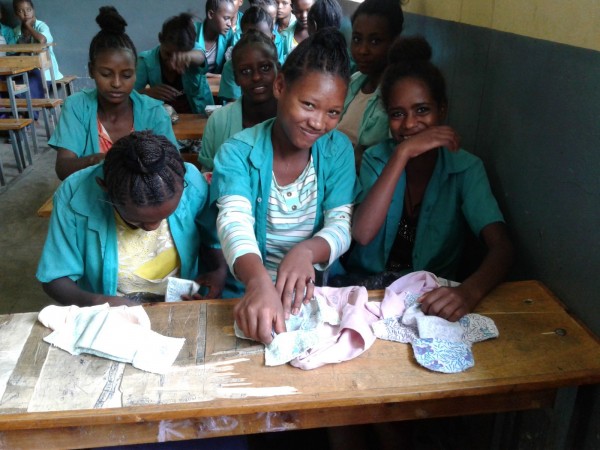
We all know that we live in a world defined by capitalism’s economic model, where almost all of our activity is focused on work, on how to obtain money to live. Our power to purchase goods marks our lifestyle, our customs and habits, our relationships and even the development of our capacities. And in this world, women have an added challenge.
We know what happens to us when we have our menstrual period: tiredness, pain, moodiness, susceptibility and, what is worse, bleeding. Despite this, with a pill to control the pain, perhaps another to control the changes of mood, and a good sanitary napkin, tampon, or other device, we can move on and continue with all our responsibilities. I am not going to focus on the extra expense that this entails. We are not born with these pills in our hands, nor are we born with pads. We must but them, and depending on which product, we even pay VAT! So, being a woman carries additional expense.
What I have just described is what we do in Spain or in any other developed country. But what about developing countries? What happens in Ethiopia? What happens to teenagers who study in the rural schools of Meki, where we work?
What happens to them is exactly what happens to us, with the difference that they have no resources for the "magic pills" or to buy sanitary napkins.
It is common to see girls who fall asleep in class, or who seem to be somewhere else, who do not play at recess or do not participate in any conversation. They have experienced menstruation for the first time, which for them is a taboo subject; suddenly they are no longer girls but women, because they can have children. Society looks at them differently, and they need time to integrate all these changes.
In addition to the reactions listed above, the most frequent result we see is that they skip class. Most teenage girls are absent from school about three days a month, due to their period. Why? Some reasons are cultural: shame, taboo, a sense of impurity. Others would be the same any woman in developed countries would have to face if they did not have a “women's kit”: they are not feeling well, and they do not have the means to control blood loss. Perhaps the days they miss class are precisely the days of the final exams. Or they missed the class on the topic that comes up in the exams. Or they simply lost the thread of the history of their country and now it is more difficult for them to follow the explanations from teacher.
In the “Classrooms for Equality” project, which we carry out in three rural schools in Meki, we talk to the students about respect for human rights, about those daily situations that arise, which are detrimental to these rights and in which women, unfortunately, are usually the most directly harmed.
In addition to these educational sessions, we want to address the problem of girls who miss school due to menstruation. It is not fair that a girl does not pass the exams because she has not been able to do them, or because her attendance at her class has been irregular and she has gaps in the knowledge learned. And this has an immediate solution.
The “Girl’s Clubs” are groups that are organized in the schools. It is an initiative that is carried out in several African countries and that has had a very good response. It consists in forming groups of teenage girls, with a teacher as a leader or person in charge, who meet biweekly and in which topics on women's health, adolescence, body changes such as menstruation, their taboos, and beliefs are debated. They also discuss their rights as women, the inherent equality they should enjoy in regard to their male classmates, and they can present their doubts and concerns. They also prepare short theatrical representations about situations of inequality that occur in their daily life, and which they exhibit, with great success, during the school festival, on the end of the academic year.
We wanted to support them with other complementary activities, such as group dynamics to reinforce their self-esteem, or with the preparation of sanitary napkins.
In rural areas a pack of pads, which are not always on sale, is very expensive and girls cannot afford them. Thus, normally women wear a rough piece of fabric or just avoid leaving their homes. What we propose to do for the girls in the teenage groups is a workshop in which they learn to make washable and reusable sanitary napkins. Making a pad of this type can cost the same as a conventional pack with the difference that the expense is made once or twice a year, depending on the use and care. In addition, we give them women’s underwear and a bar of soap to wash them. In the workshop we use a sanitary napkin already made as a model, and they follow the steps until they are completed. Obviously, not all of them have the same skill in sewing, but with practice they improve. We teach them how to use them and how to maintain proper feminine hygiene. In addition, and in coordination with the health education and first aid program that we also carry out in schools, we provide them, when they need it, with medications to relieve pain so that they can attend classes with a better disposition.
And thus they already have the “women's kit”, ready for school, ready for work, and ready to continue overcoming obstacles in the race for a dignified life, a life in which there may be equal opportunities for everyone.









